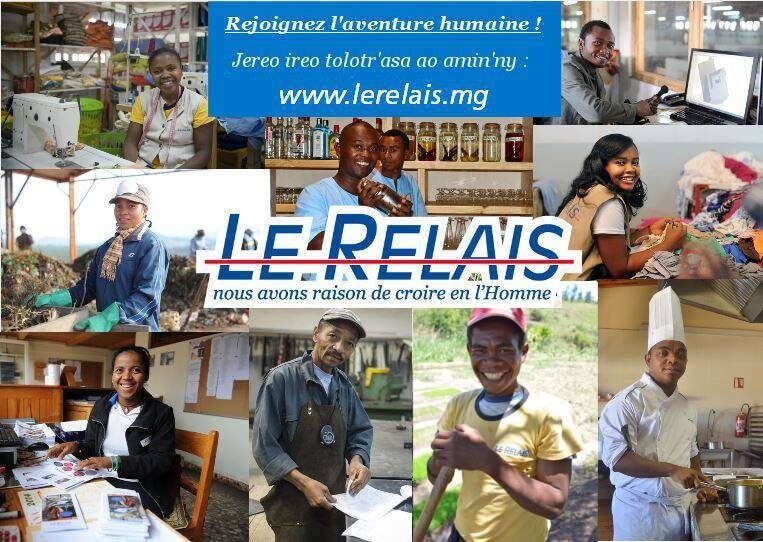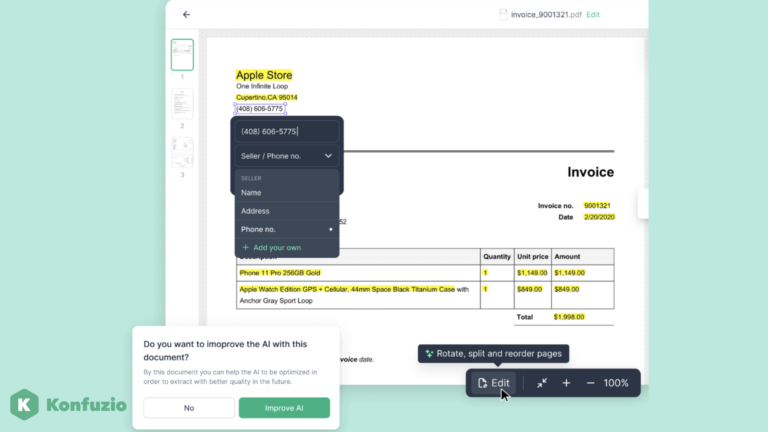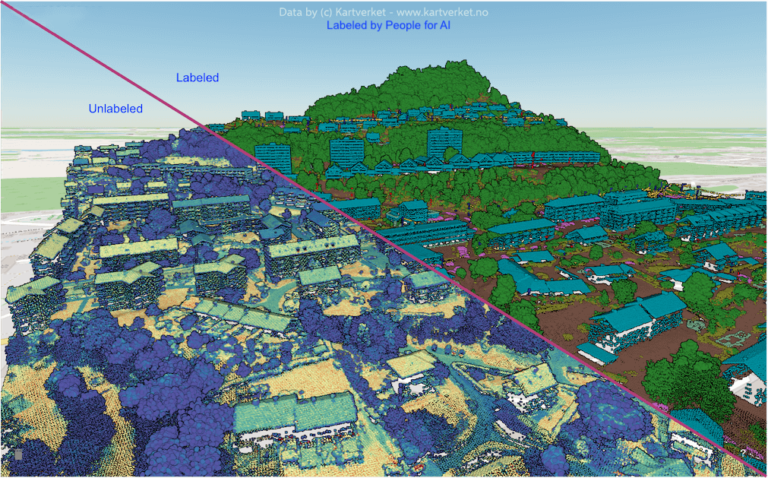This is the second blog post on our partnership with Le Relais. Stay with us to know more about the workforce, their working conditions, their selection, their training and the benefits gained by our labelers from working with us.
To read the first blog article about our relation with Le Relais, click here.
—
How it is today
Created in 2020, the Ejery team counts, in Q3 2023, with +20 labelers and +3 local project managers. The team, with an impressive rate of near-to-zero turnover, is now focused on developing the present workforce.
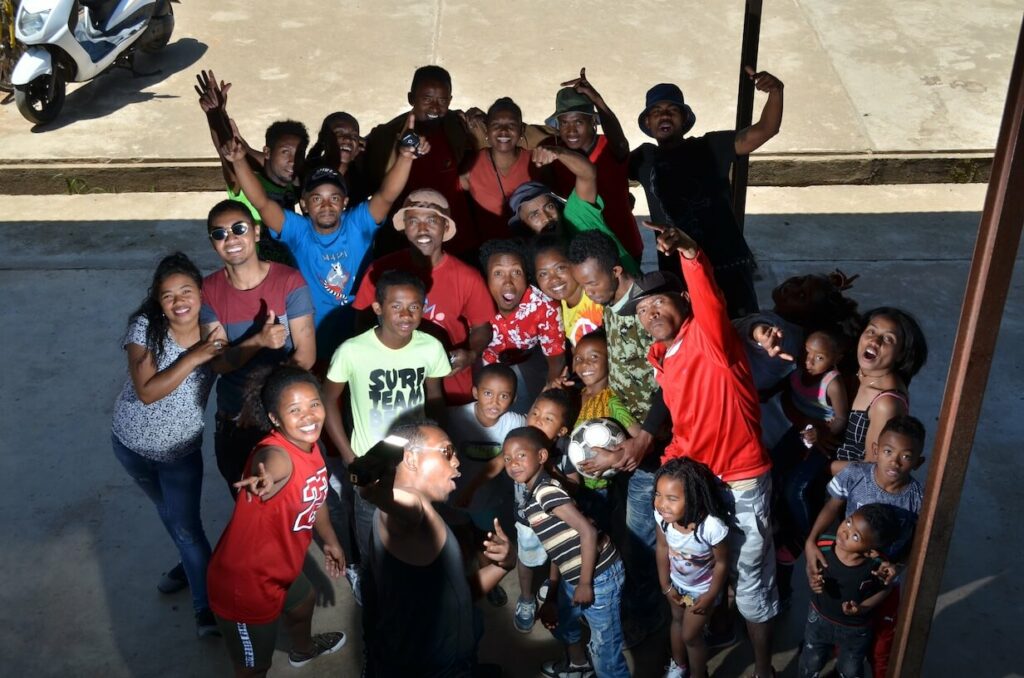
The labelers
Our annotators come from the most diverse background. Many are not familiar with the IT industry. That’s the case of Sandra, who worked for many years at the second-hand goods sorting center at Le Relais. However, she was always keen on technology and decided to try and take a different turn in 2022. She’s been in the data labeling team ever since. We also have some members who were previously involved in the tech industry, like Henintsoa. He was a freelancer in the annotation and transcription domain when he decided to join the Ejery team in 2022.
Selecting the labelers
Many of our annotators embark on their journey with little prior computer knowledge. Through a comprehensive process, they are carefully guided, trained, and selected to become skilled contributors to our data labeling projects. This process consists of four distinct phases, ensuring the acquisition of essential skills:
- Open Registrations and Applications: Initially, there are no specific prerequisites. We encourage individuals to apply and express their interest.
- Foundational Training: Selected applicants undergo a training program that familiarizes them with computer’s use, annotation tools and data labeling techniques.
- Evaluation: An examination assesses their ability to learn fast and master the annotation tools and software, measuring their understanding from the training.
- Project Simulation and Assessment: Candidates showcase their skills in a test project or simulated scenario, providing a practical demonstration of their capabilities.
The selection process puts emphasis on the candidate’s proficiency in learning and being at ease with computer tools. This multi-phased approach ensures a comprehensive evaluation before any actual project engagement. It also ensures that by the time they engage in real projects, they are well-equipped and more confident in their abilities.
Training the labelers
At People for AI we believe in developing our workforce to build strong teams. To do so, we offer training and investments to our annotations. Here are some formation examples:
- First training: All labelers undergo an initial training during the selection process.
- Prior to projects: Before project assignments, annotators receive comprehensive training from project managers to prepare them for the tasks ahead.
- In between projects: During gaps between projects, training sessions are held. These encompass both software-related aspects (e.g. new labeling tools) and domain-specific subjects.
- Relais-delivered training: Le Relais provides weekly 1.5-hour training sessions to all its employees on Tuesdays. Formation may cover topics such as languages (e.g. French and English), communication, personal development, and more.
- Continuous training: Throughout their work, labelers are trained to enhance their skills while they contribute to projects “on the job”. For more insights into our continuous training methods and quality standards, explore our article on the subject.
This foundation ensures that members are equipped with the skills needed to excel in the dynamic field of AI data labeling. Specific support is offered if needed, as exemplified by André’s case.
Investing in Our Team: André’s Journey of Improvement
At People for AI, our commitment to fostering growth and excellence shines through our dedicated approach to selecting and training annotators. Our PMs play a pivotal role in ensuring each team member thrives.
Take André’s case, an example that embodies our investment in our team. Our CEO, Matthieu Warnier, noticed that André’s results were falling short, characterized by frequent errors in labeling and a lack of speed. In response, Matthieu promptly engaged our PMs. Recognizing André’s need for development, the PMs initiated a chain reaction, involving HR and Luc Ronssin, Le Relais Madagascar’s director. This collaborative effort was aimed at guiding André’s progress and promoting improvements.
Following insightful discussions, we understood that André was mainly lacking confidence in his capacities. This lack of self-esteem caused him to label very uncertainly and slowly. As training evaluations showed room for growth, our PMs coached him accordingly. To bolster André’s confidence, they paired him with another annotator, facilitating a collaborative learning experience. Eventually, André overcame his lack of confidence and felt more comfortable, starting to perform as well as the others labelers in the Ejery team.
André’s journey reflects our dedication to continuous improvement. With unwavering support and strategic measures, our PMs witnessed André’s transformation. Today, André contributes significantly to our team, illustrating how investing in our team’s development enriches our collective success.
Our annotators’ life at Le Relais
We’ve explained about our partnership with Le Relais, but how is the life of our Ejery team there? Let’s take a deeper look at how Le Relais works and how they live.
A day as a PFAI’s annotator from Le Relais
Le Relais is a large non-profit organization and offers many benefits to its employees. An employee has access to transport, food and sports. That is, Le Relais provides its own public transportation in the city of Fianarantsoa with 5 transports lines (with vans) to bring employees from remote areas of the city to the office. There is also a canteen where meals are served in a welcoming atmosphere. Finally, there are many facilities for relaxation and personal care, such as music rooms, fitness rooms and sports courts.
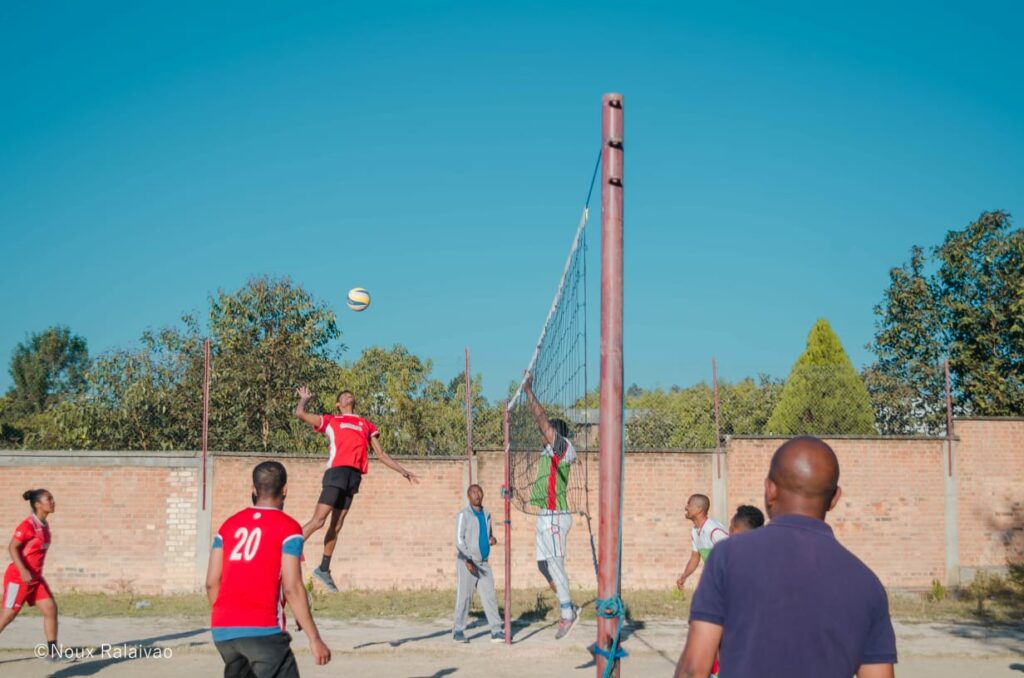
We hire all of our labelers in the Ejery team in long-term contract (CDI in the Malagasy law), assuring stability and quality to their lives.
Our Ejery team – and all Le Relais workers – also dispose of a series of work benefits:
- Healthcare Support: By contributing to OSTIE, Le Relais Madagascar offers employees a medical coverage that addresses health needs, including medical expenses and access to healthcare professionals.
- Performance-Based Bonuses: Employees can expect financial bonuses distributed biannually, aligned with their performance. Additionally, annual gift baskets are provided as a token of appreciation.
- Retirement Preparation: Le Relais contributes to CNAPS, supporting employees’ retirement planning for long-term financial security.
- Training Opportunities: Continuous learning is encouraged through personal development workshops and language courses.
Conclusion
Our collaboration with Le Relais Madagascar has been key to aligning technological innovation, data labeling with the creation of sustainable job opportunities.
To find out more about Le Relais and the valuable work they do, we recommend you visit their website. Our ongoing partnership reflects People for AI’s commitment to making data labeling a positive force for change in the world and community development!
